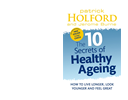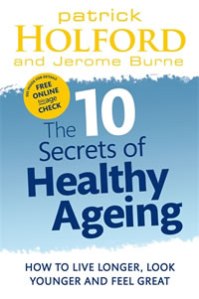Just as Catholic cardinals condemn paedophilia, so mainstream medicine formally rejects treatments not supported by evidence in the form of clinical trials. But in reality interfering with novices or failing to come up with the evidence, providing of course a drug is involved, doesn’t necessarily mean banishment. Both dodgy priests and drugs can remain on the job for years. But while we’ve long known about the priests – and still find the hypocrisy hard to stomach – cases of the dodgy drugs are less familiar.
So here is a particularly glaring one. Over two million prescriptions were written for the cholesterol lowering drug ezetimibe in 2011, even though there is no evidence that it does anything to reduce the risk of heart disease, which is the only reason you would take it. It’s been available on the NHS for ten years and in 2011 we taxpayers spent 71 million pounds on those prescriptions. Worldwide sales are about two billion annually.
It’s topical because last month the makers Merck paid out 688 million dollars to settle claims in America that it had defrauded shareholders by withholding the results of a negative trial in 2008. The drug, called Vytorin in the States (Ezetrol in the UK), is actually a combination of two ingredients – ezetimibe (zetia in the States) and simvastatin (Zocor in the States) the most widely used cholesterol-lowering statin.
An unqualified disaster
The combination is recommended for people who have failed to get their cholesterol low enough with a statin alone. It works in a different way to statins by blocking cholesterol absorption in the guts. The shareholders claimed that they weren’t able to make “informed decisions” because the company took a year to release the results of a trial described as an “unqualified disaster.”
The way the trial failed is interesting. The combination certainly lowered cholesterol very effectively. Patients with a high risk of heart disease who got the combination saw their cholesterol drop by 58% compared with 41% for those on the statin alone. Trouble was that this had no effect on their risk of heart disease. The trial measured how much the drug combo reduced plaque build-up in an artery in the neck. While the statin alone decreased plaque, the combo slightly increased it.
The claims were based on possible financial loss because the trial showed ezetimibe was ineffective and so, you might assume wouldn’t sell very well, if at all. Bizarrely it seems to have made little difference to sales. What does that tell us about evidence based medicine? But there is something even more shocking that follows from this trial. The fact of lowering cholesterol on its own doesn’t cut your risk of heart disease.
Does lowering cholesterol cut cardiovascular risk?
This has also been largely ignored but this raises an even bigger question about the practice of evidence based medicine. Could it be that that statins don’t lower heart disease risk by lowering cholesterol but by some other route – possibly by reducing inflammation? Even so, calls to lower cholesterol are as insistent as ever.
And there is a third issue. The company has to pay out half a billion dollars for imperilling shareholder’s profits but nothing for condemning millions of patients to continue taking a drug that had a big question-mark over it.
And if you believe that drug prescribing always follows the evidence it’s hard to explain why use of the drug is increasing significantly. Just before the failed Enhance trial was completed in 2007, there were 1.7 million prescriptions written in England for ezetimibe, in the year the results came out (2008) prescriptions went up to 1.9 and by 2011 after more failures it was up to 2.2 million.
Launched with excited claims
The piece I wrote about ezetimibe at the time of the Enhance trial in the Daily Mail gives more background details. By then the drug had already been on the market for four years, having been with launched with excited claim that it offered doctors a whole new way of fighting cardiovascular disease.
In 2010 ezetimibe failed again. A study known as ARBITER 6-HALTS, published in Journal of American College of Cardiology, compared the effect of adding the B vitamin niacin to a statin with the benefit of adding ezetimibe. Again the test was the reduction of the thickness of plaque in an artery leading to the brain.
While added niacin “significantly regressed the atherosclerosis” the addition of ezetimibe had no effect. Dr John Briffa’s blog has details of some other failed trials.
With one bound the undead is free
Just to be sure there wasn’t a successful trial lurking, I did a Medline search last week and found a “clinical update” of ezetimibe published last year. After a detailed review of all the trials the authors write: “To date no randomised trial has shown a significant reduction in clinical events with combination therapy using ezetimibe plus statin versus statin alone.”
And that you might think would be that. Final nail in the coffin surely. But with one bound this undead drug is free. There is yet another trial on-going and until that reports the authors conclude: “Based on the current available data ezetimibe should remain a viable adjunct to statin therapy.” Two of the three authors on the paper disclose that they are speakers for Merck.
When the topic of CAM and evidence based medicine comes up and anyone mentions homeopathy and the outrageous waste of four million on an evidence free placebo, just say “ezetimibe”. It doesn’t even have a placebo effect.



Hi Jerome
I wish to take issue with this statement found above in your article:
“… The drug, called Vytorin in the States (Ezetrol in the UK), is actually a combination of two ingredients – ezetimibe (zetia in the States) and simvastatin (Zocor in the States) …”
I understand this to mean that Ezetrol is a combo drug comprising ezetimibe and simvastatin as ingredients.
However, according to this product information Ezetimibe and Ezetrol are one and the same, with product and trade names. As indicted at this site:
“Each tablet of EZETROL for oral administration contains 10 mg ezetimibe.”
which is found here
Click to access auspar-ezetimibe-130228-pi.pdf
And more:
“Ezetimibe, the active ingredient of EZETROL, works by reducing the cholesterol absorbed in your digestive tract.” Which is found here:
https://www.medicines.org.uk/emc/medicine/12092
Have I misunderstood these complicated chemicals?
Regards
Apologies for confusion – seems that Vytorin is marketed as Vytorin in UK as well as US. Main point is that ezetimibe is a ridiculous drug that does nothing to increase life expectancy and is probably off patent by now
You must now consider the latest evidence:
http://www.foxnews.com/health/2014/11/18/merck-zetia-cuts-heart-attack-stroke-risk-in-long-awaited-study/
Yes it is true that the long running Improve-it trial did find a small benefit. The real point of this study was not to prove the benefit of Ezetimibe (Zetia in the USA) which after all is off patent or will be very soon, but to protect the theory underpinning statin use that lowering cholesterol is of itself beneficial. This is because a new patented and very expensive drug – PCSK9 – has only been shown to lower cholesterol. If Improve-it had not found a benefit then PSSK9 would have found it much harder to get a licence without more trials showing cholesterol lowering actually cut heart disease risk. A post about the shortcomings and issues around this trial by Dr Malcolm Kendrick will very shortly being going up on HealthInsight.org.
Dear Jerome,
Well, it is obvious that you know what you are talking about (I am new here). I realize the competitative nature of these things and that there is a bottom line involved. I would just like the truth every now and then. I say this as someone who had by-pass surgery when I was 34 years old (back in 1997). I have had no cardiac incident but I always want to be doing what I can to live as long as I can. I have been on 40mg (lipitor) and slow release niacine for many years and my LDL has hovered from 70 to about 50 (on the north american scale)
So, thanks for your fast response and I look forward to hearing you expert views and advice.
John Dennis (London, UK)
John hi – as a humble journalsit I can’t give any clinical advice only report on research, often what tends to be ignored when it contradicts mainstream approaches, and views of various experts. Most of the discussions here involve staying healthy rather than treating illness so the statin coverage is limited to people who are healthy but have a raised risk. But you’ve got cardiovascular disease, I assume, and statins are widely held to be beneficial in that case.
Lifestyle options are also recommended for that so you might want to step those up and keep an eye on your biomarkers – cholesterol, blood pressure etc – and see if they go in the right direction. For more details you could look at a book I wrote with nutritionist Patrick Holford called 10 Secrets of Healthy Ageing. Do tell your doctor about any changes you might be making.
Does lowering cholesterol cut cardiovascular risk?
If you believe the research of Otto Barnes it might. Barnes claimed that atherosclerosis was a result of hypothyroidism. Supplementing thyroid in those with high serum cholesterol will, in many cases, reduce cholesterol without reducing the production of cholesterol (which is a precursor of important hormones such as steroids and vitamin D). If Barnes was correct, supplementing thyroid would both reduce cholesterol and reduce the risk of cardiovascular disease.
This hypothesis assumes that high cholesterol merely correlates with and does not cause cardiovascular disease. If it is correct, it would not make sense to reduce cholesterol by other means. However, there is little money to be made in proving the point with clinical trials. Dessicated thyroid and other forms of thyroid supplementation are too old to be patentable and too cheap to produce. There is no money in them and, therefore, we are unlikely to see them promoted, despite their potential benefits.
Good lord! I hope your Catholic readers appreciate this analogy
The Catholic hierarchy finally seems rather more embarrassed about dodgy priests than the medical hierarchy does about some dodgy drugs